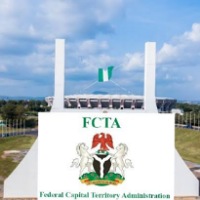
Director-General, NAC, Mr. Aminu Jalal
The Federal Government is set to compel any automobile firm with an annual sale figure of 10,000 vehicles in Nigeria to establish a local assembly plant or be ready to quit the market.
This is one of the provisions stipulated in a new automotive bill currently before the National Assembly.
Already, the bill prepared by the Federal Government has passed the second reading at the Senate, according to the Director-General, National Automotive Council, Mr. Aminu Jalal.
The implication of this provision is that Toyota Nigeria Limited, a leading vehicle distributor,
and the Stallion Autos, a major dealer in the Honda brand of vehicles, will be expected to start producing or assembling the vehicles in Nigeria. The TNL is currently selling between 18,000 and 20,000 new vehicles in Nigeria annually through its seven accredited dealers.
Jalal, in a chat with our correspondent on Friday, was optimistic the automotive bill would be passed and signed into law after the February general elections.
“The new law, which will give a legal backing to the auto policy of the Federal Government, should be ready in April. The bill has passed the second reading. And any auto company that is selling 10,000 passenger cars must have an assembly plant here,” he said.
For companies selling new commercial vehicles such as buses, Jalal said 2,000 units had been proposed as a minimum sale figure that would warrant the establishment of an assembly plant in Nigeria.
He said, with those minimum sale figures, it was expected that the assembly plants would break even.
The NAC DG also said in Enugu on Thursday that Honda and five other auto firms had confirmed their readiness to start assembling vehicles this year.
He spoke at the rollout of the first batch of Shackman trucks assembled in Enugu by the Anambra Motor Manufacturing Company Limited in conjunction with the Transit Support Services Limited, a subsidiary of the ABC Transport Services.
“We expect Volkswagen, Honda, Tata, Coscharis Motors and Globe Motors to start assembly operations this year,” Jalal said.
While ANAMMCO has joined Peugeot Automobiles in reviving their moribund assemble plants in Enugu and Kaduna, respectively after the announcement of the new auto policy in September 2013, auto companies such as Kia, Hyundai and Innoson Vehicle Manufacturing Company, are already assembling vehicles in Nigeria.
Nissan appears to be the only big name among the automakers that have set up assembly plants in the country. It presented some units of the locally assembled Patrol, a sport utility vehicle to President Goodluck Jonathan last year.
Although the management of the TNL has not ruled out the possibility of assembling the Toyota brand of vehicles in Nigeria, it maintains that it is still studying the terrain to know the viability of the project.
It specifically said in a published statement last year that it was conducting a feasibility study and insisted no date had been fixed for the commencement of the project proper.
Jalal also confirmed that a total of 23 automakers had sealed the local assembly plants’ deals, having signed Memorandums of Understanding with their technical partners.
The list of the 23 firms released by NAC comprises Coscharis Motors Limited, Weststar Associates Nigeria Limited, Lanre Shittu Motor Nigeria Limited, Dana Motors Limited, Globe Motors, Hyundai Motors Nigeria Limited, Kewalrams-Chanrai, Stallion Nissan Motors Nigeria Limited, Stallion Motors Limited, and Tata Nigeria Limited.
Aston Motors, Basco Nigeria Limited, General Appliances (West Africa) Limited, Nigeria-China Auto Manufacturing Coy Limited, Nigerian Sino Trucks Limited, Origin Automotive Works, Peace Mass Transit, and Scoa Nigeria Plc are also on the list.
Others are Transguinea Limited/Leventis Motors (A division of AG Leventis Nigeria Plc, Tilad Nigeria Limited, Transit Support Services Limited, Tetralog Nigeria Limited and WAW Motors Nigeria Limited.
A breakdown of those that have keyed into the local assembly plants arrangement shows some of the firms will be combining trucks with cars, SUVs, trucks and (mini-)buses.
There are auto firms that will be doing only one type of vehicle such as tractors, buses, trucks or cars.
A close look at the list indicates that so far 14 of the auto companies will be involved in assembling trucks; 13 are to do buses; nine to produce cars and SUVs; three for tractors and one to assemble tricycles.
PUNCH-

















